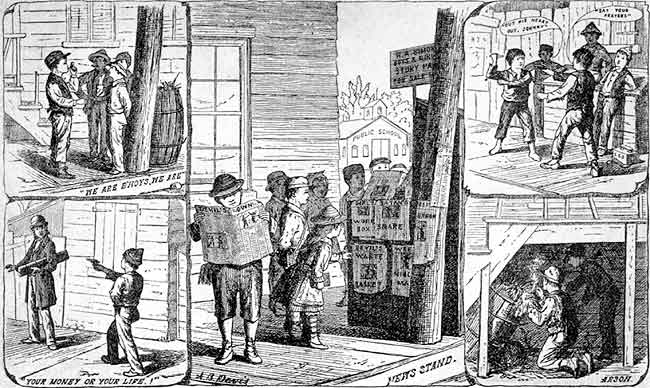talking history | syllabi | students | teachers | puzzle | about us
“The modern news stand and its results.”
During the mid- and late-nineteenth century, reform organizations such as the Salvation Army and the Young Men’s Christian Association (YMCA) sought to bring Protestantism and “wholesome” activities to the urban working class. An active YMCA member, Anthony Comstock was also a leader of the social purity movement, which rejected overt sexual expression and practice. In 1872, Comstock won passage of a law (known as the Comstock Act) that banned the mailing of obscene, lewd, lascivious, and indecent writing or advertisements, as well as contraceptives. The frontispiece of Traps for the Young, an influential 1883 pamphlet by Comstock, illustrates the threat purportedly posed by the “debased” commercial press. “They open the way for grossest evils,” Comstock wrote. “Foul thoughts are the precursors of foul actions.”

Source: [A. B. Davis], Anthony Comstock, Traps for the Young (1883)—American Social History Project.
